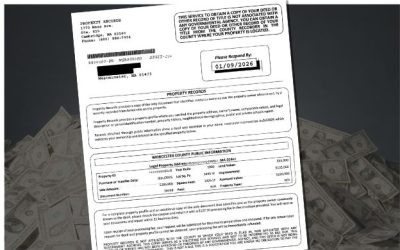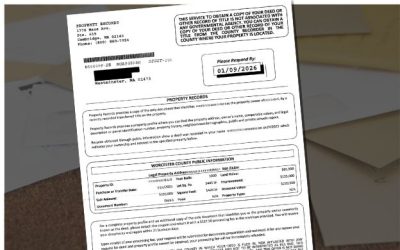Spotting and Preventing Vacant Property Fraud: A Guide for Real Estate Agents
Real estate agents are increasingly becoming targets for vacant property fraud,
a rising trend in the industry.
These scams often involve fraudsters posing as property owners to exploit the real estate transactions process. As a real estate agent, understanding the red flags and strategies to prevent fraud is essential to protect both your clients and yourself.
Spotting the Red Flags
Scammers may try to make their schemes seem legitimate, but there are common signs to watch out for:
- The seller claims to reside in another state or country and insists on communicating only through email.
- The seller is overly eager to close the deal quickly, often proposing a price that seems too good to be true.
- The seller shows little concern about the standard closing costs and appears solely focused on getting the net proceeds as swiftly as possible.
- The email communication from the seller contains typographical mistakes, boilerplate language, or originates from a suspicious foreign domain.
- The seller provides a questionable reason for limited contact, such as working as an offshore engineer or suffering from a severe medical condition.
- The seller insists on using a power of attorney, but the agent under that power does not personally know the seller.
- The seller’s identification appears dubious, with features like pasted photos or a lack of security features.
- The signatures of the seller or notary appear suspicious.
- The seller’s current location does not match the address listed in the county tax records, and the documents provided by the seller are notarized in a different location.
- The seller provides wiring instructions to a bank located in a different place.
Preventing Fraud
If a transaction appears or “feels” suspicious, take proactive steps to verify the legitimacy of the seller and the transaction:
- Subscribe to databases like “PeopleFinders” and attempt to contact the property owner directly.
- Conduct online searches for the owner, including checking for obituaries or probate estates.
- Check online real estate listings to verify if the property is listed for sale and contact the listing agent to cross-check your transaction.
- Request additional documents from the seller to assist in verifying their identity.
- Ask the seller to send a picture of their driver’s license or passport via email or text.
- Verify the notary through the Secretary of State where the document was notarized.
- Make an effort to contact the notary directly and verify the acknowledgment.
By understanding these red flags and prevention strategies, real estate agents can play a crucial role in curbing the rise of vacant property fraud. Stay vigilant, stay informed, and protect your interests and those of your clients.
Providing title, escrow, closing and settlement services to clients throughout Massachusetts and New Hampshire
From Our Clients
Recent News
What Real Estate Agents Need to Know About FinCEN’s New Residential Real Estate Reporting Rule (Effective March 1, 2026)
SUMMARY: Starting March 1, 2026, FinCEN’s Residential Real Estate Rule requires a Real Estate Report for certain non-financed residential transfers where the buyer is an entity or trust (common “cash/opaque ownership” scenarios). Real estate agents do not file the...
Why New Homeowners Get Targeted After Closing
For many buyers, one of the most surprising parts of homeownership happens after the closing is complete: the sudden increase in mail related to their property. This isn’t accidental—and it isn’t unique to any one company or offer. It’s the predictable result of how...
New Homeowners Beware: “Recorded Deed” Letters That Aren’t What They Seem
Buying your first home is exciting—and it often comes with a mountain of paperwork. Unfortunately, it can also make you a target for misleading solicitations that appear official and urgent, but offer nothing you actually need.One of the most common examples we see...









